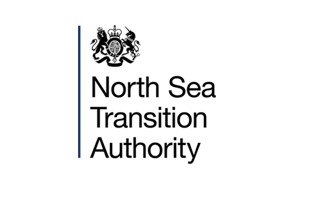
The Oil and Gas Authority (OGA) has reaffirmed its focus on the importance of collaboration and is urging industry to increase the pace at which licensees develop a culture of collaboration internally, and externally with existing joint venture (JV) partnerships and beyond.
Further to the recommendations of Sir Ian Wood’s UK Continental Shelf (UKCS) Maximising Recovery Review, collaboration was incorporated in the Petroleum Act 1998 as a key part of delivering the principal objective of maximising economic recovery (MER). Through the MER UK Strategy, collaboration was elevated from being a matter of general practice to a statutory obligation.
The OGA’s Asset Stewardship Collaboration Implementation Guide (SE-09) details how an organisation can demonstrate it is meeting the OGA’s requirements of this stewardship expectation, including the use of a recognised collaborative behavioural assessment tool within their JV and acting in accordance with voluntary codes of practice and charters.
Furthermore, today, the OGA published its Collaborative Behaviour Quantification Tool (CBQT) with supporting guidance. Developed with industry to provide an assessment of collaborative behaviours, it covers areas such as; negotiations, ability to learn and share experiences and constructive and flexible attitudes to change.
Andy Samuel, OGA Chief Executive, said: “Over the last two years, we have seen many positive examples of collaboration between companies leading to solutions to long-running issues. Significant value has been created as a result, however, there remains more to do if we are to maximise value from the UK’s considerable remaining hydrocarbon resources.
“With the publication of the OGA’s Asset Stewardship Expectations, the Collaborative Behaviour Quantification Tool and most importantly, with the right people round the table in constructive dialogue, we can continue to catalyse positive behavioural change.
“Improvements in company commercial behaviours make a fundamental impact on MER UK and underpin our vision for the UK’s oil and gas industry.”
Following a successful pilot with Chevron North Sea Limited (CNSL) in Q4 2016, CBQT will now be undertaken by operators and the OGA every two years, starting in 2017. Under CBQT, operators may be requested by the OGA to submit an improvement plan within six months of the review which will focus on improvement of collaboration behaviours.
Greta Lydecker, Managing Director, CNSL said: “A commitment to real collaboration across the UKCS will help reduce costs and create opportunities throughout the value chain. The challenge for operators is that collaboration can have different interpretations and to make meaningful progress in this area requires clearly defined behavioural expectations and leadership to set the right culture.
“Our experience in piloting the tool is that it provided a robust framework to evaluate the quality of our collaborative behaviour. We found the structured dialogue sessions to be a highly valuable exercise to validate assumptions and to identify opportunities for improvement. Importantly for us, it was an efficient and effective process that was outcome focused.”
In addition, the OGA has been supporting the Oil & Gas UK Commercial Behaviours Work Group, (now known as the Commercial Managers’ Forum), which brings Commercial Managers from E&P companies together from across the industry to provide leadership for developing and embedding the collaborative commercial behaviours needed to deliver MER UK efficiently. Specific initiatives being led by this group include the updated 2016 Commercial Code of Practice (CCOP), new industry guidelines on negotiations best practice and the introduction of a standard form desk-top study agreement.
This year, the group is refreshing the Infrastructure Code of Practice (ICOP), producing a standard form Offshore Access/Study Agreement and embedding measurement of commercial behaviours performance. All are designed to facilitate delivery of MER UK and are strongly welcomed and supported by the OGA.
Mike Tholen, Upstream Policy Director with Oil & Gas UK, said: “The Commercial Managers Forum serves a vital purpose as we maximise the value opportunity through collaboration. We are confident that the Collaborative Behaviour Quantification Tool will demonstrate the success of this new way of working.”
ENDS
Notes to editors:
- Gunther Newcombe, OGA Operations Director, is speaking at the ‘Collaboration in Oil & Gas: Making it work in practice’ event on Thursday 20 April 2017 at Aberdeen University.
- The OGA’s Asset Stewardship Strategy can be found here
- The CBQT can be found here
- The Commercial Manager’s Forum is holding a half day conference on 2 May: ‘Shaping the Commercial Agenda for a Competitive Basin’. The invitation has been extended to the commercial and legal managers of upstream companies
- The event’s agenda is focused on communicating the status and progress of current commercial change work scopes, and shaping the commercial change agenda for the coming 12 months
- The MER UK Strategy can be found here. It was published on 18 March 2016
- Its Central Obligation is binding on all relevant persons and, to assist with its effective delivery, the MER UK Strategy also sets out a number of Supporting Obligations, Required Actions and Behaviours
- Collaboration by participants in the oil and gas industry is also required under Section 9A of the Petroleum Act 1998 (as amended)
- Last year, the OGA published its Competition and Collaboration paper, which outlined matters for industry to consider related to collaboration and competition law in the UKCS oil and gas market. It is the OGA’s view that such considerations should not be used as an excuse not to comply with the obligations set in the MER UK Strategy, unless they are well-founded.
For more information about the OGA, please contact:
Leona Minellas
Communications Manager
Oil & Gas Authority
Tel: +44 (0) 300 020 1072


